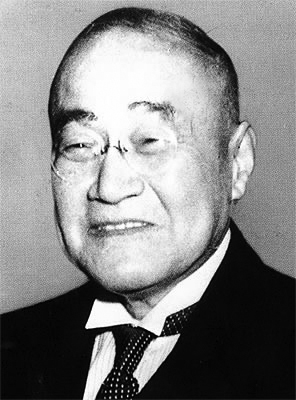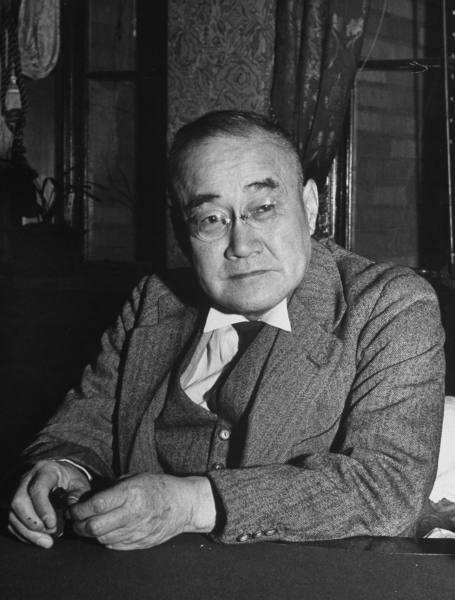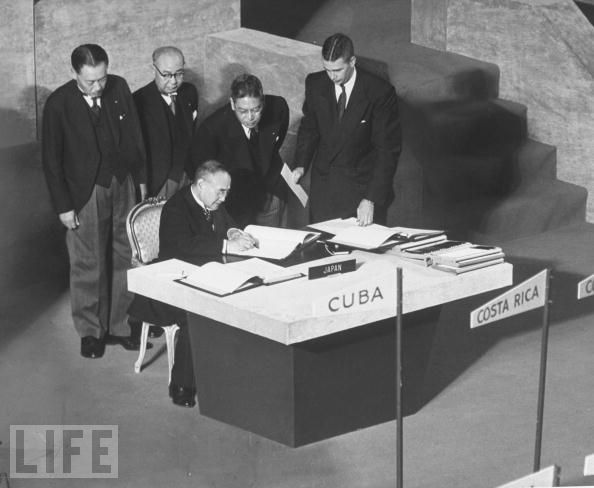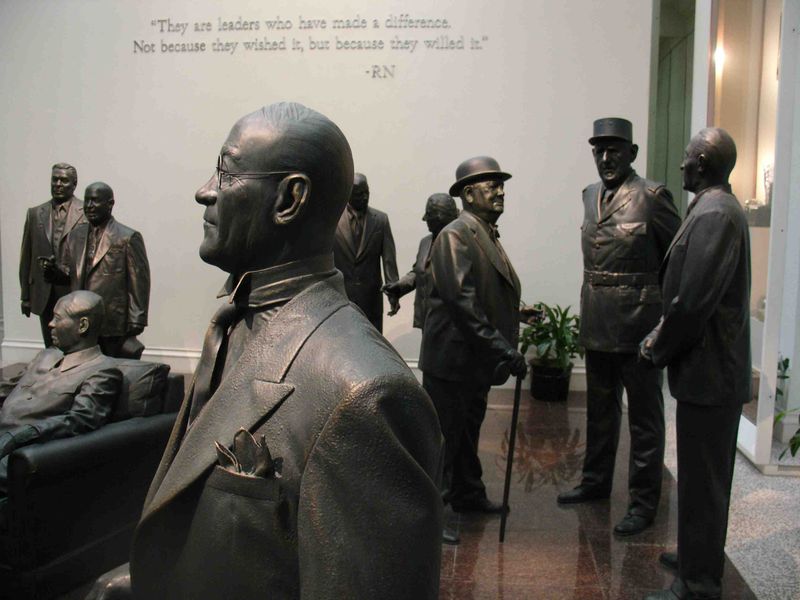<Back to Index>
- Physician Claudius Galenus of Pergamon, 129
- Writer Philipp Nicodemus Frischlin, 1547
- Prime Minister of Japan Shigeru Yoshida, 1878
PAGE SPONSOR



Shigeru Yoshida (吉田 茂 Yoshida Shigeru), KCVO (September 22, 1878 – October 20, 1967) was a Japanese diplomat and politician who served as Prime Minister of Japan from 1946 to 1947 and from 1948 to 1954.
Yoshida was born in Yokosuka near Tokyo and educated at Tokyo Imperial University. He entered Japan's diplomatic corps in 1906 just after Japan's victory against Russia in the Russo - Japanese War. He was Japan's ambassador to Italy and the United Kingdom during the 1930s and finally retired from his last appointment as ambassador to London in 1938. Throughout the 1930s and before the war ended in the early 1940s, Yoshida continued to participate in Japan's imperialist movement. After several months' imprisonment in 1945, he became one of Japan's key postwar leaders.
Yoshida
became the 45th prime minister on May 22, 1946. His pro-American and
pro-British ideals and his knowledge of Western societies, gained
through education and political work abroad are what made him the
perfect candidate in the eyes of the postwar Allied occupation. After being replaced with Tetsu Katayama on May 24, 1947, he returned to the post as the 48th prime minister on October 15, 1948. Yoshida's policies, emphasizing Japan's economic recovery and a reliance on United States military protection at the expense of independence in foreign affairs, became known as the Yoshida Doctrine and shaped Japanese foreign policy during the Cold War era and beyond. Under
Yoshida's leadership, Japan began to rebuild its lost industrial
infrastructure and placed a premium on unrestrained economic growth.
Many of these concepts still impact Japan's political and economic
policies. However, since the 1970s environmental movement, the bursting
of Japan's economic bubble, and the end of the Cold War, Japan has been
struggling to redefine its national goals. His administration openly
encouraged a "3-S" policy — sports, screen, and sex, a change from the
strict pre-war censorship of materials labeled obscene or immoral. He
was retained in three succeeding elections (49th: February 16, 1949;
50th: October 30, 1952; and 51st: May 21, 1953). Power slipped away as
he was ousted on December 10, 1954, when he was replaced by Ichirō Hatoyama. Yoshida retired from the Diet of Japan in 1963. In 1967, Yoshida was baptized on his deathbed after hiding his Catholicism throughout most of his life. His funeral was held in St. Mary's Cathedral, Tokyo. Yoshida's grandson, Tarō Asō, is a Japanese politician and served as the 92nd Prime Minister of Japan from 2008 to 2009.


